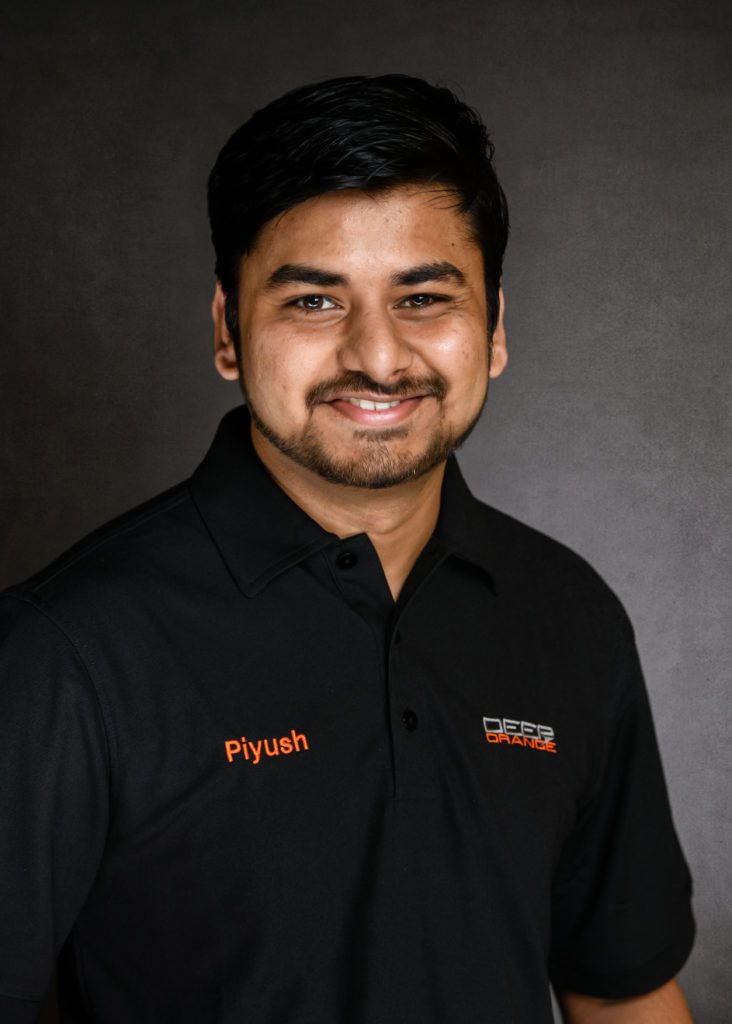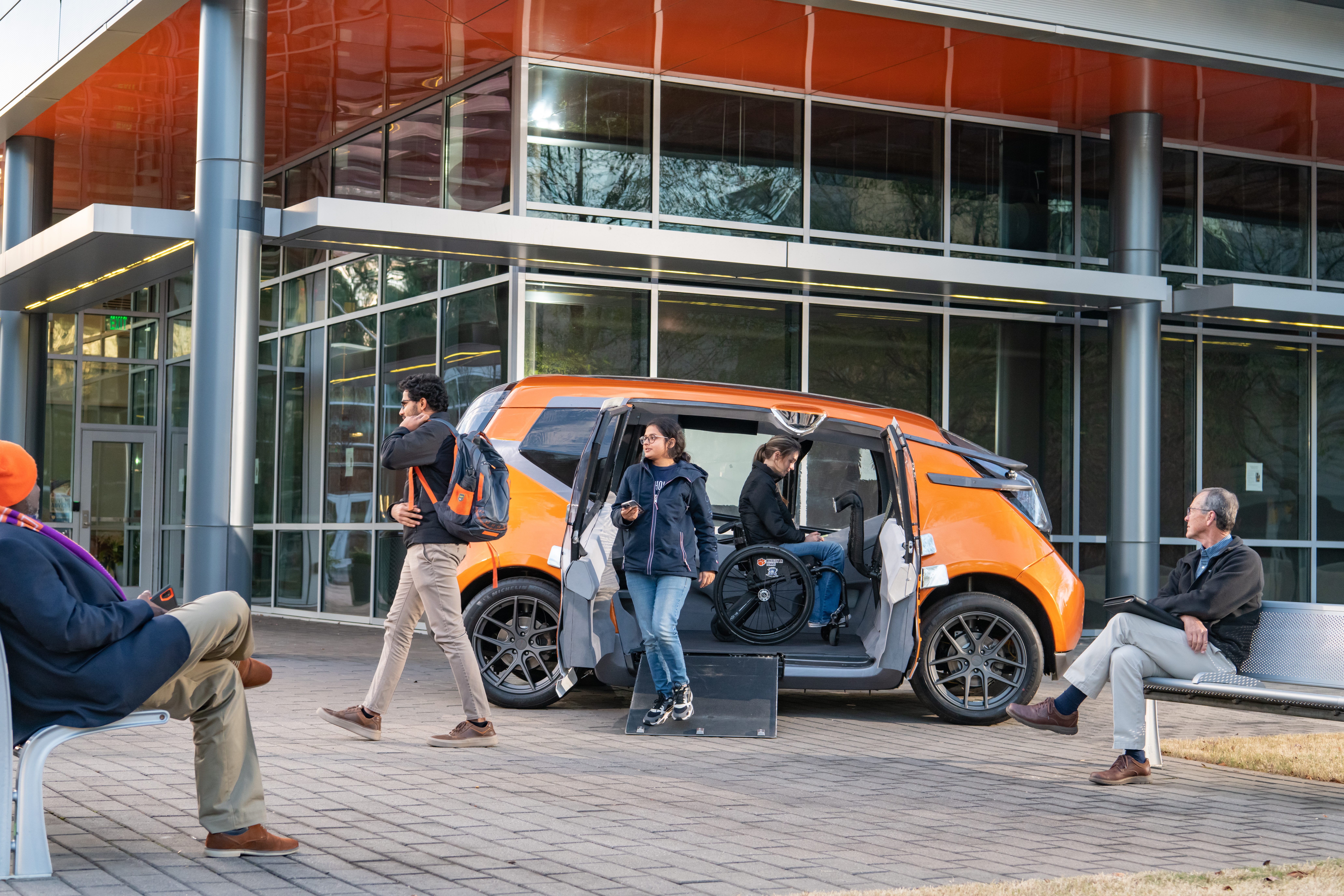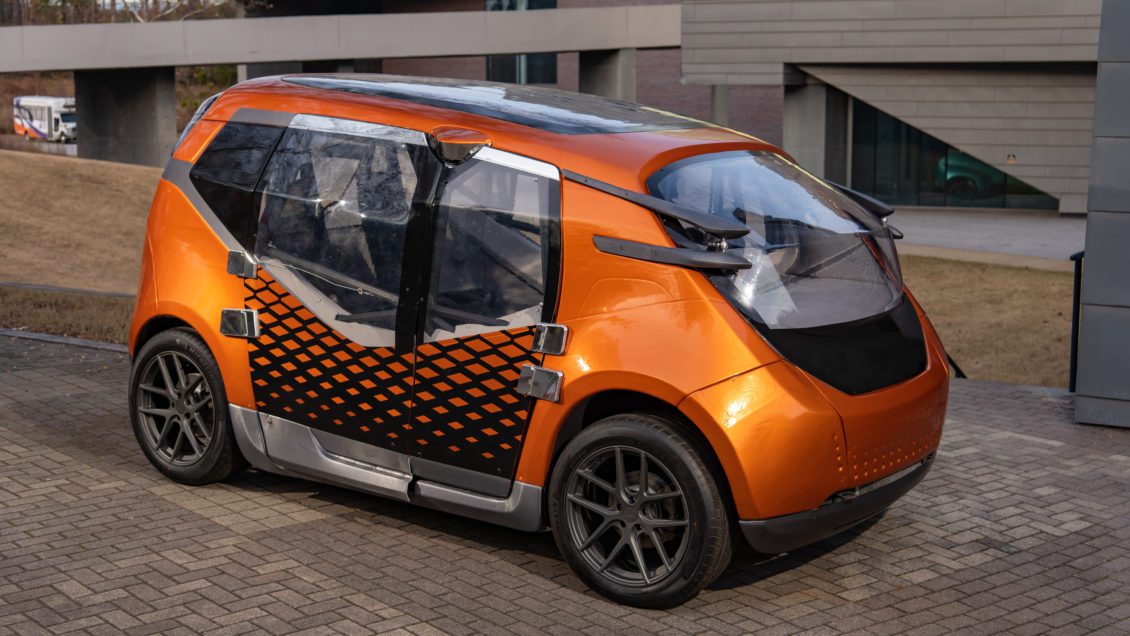Sustainable by design prototype vehicle features circular economy concepts, novel uses for advanced materials, improved recyclability and low-impact operation.
Clemson University’s International Center for Automotive Research (CU-ICAR) will represent the Palmetto State at the 2023 Consumer Electronics Show (CES), widely regarded as the world’s largest electronics showcase with more than 110,000 expected global visitors, in Las Vegas from January 5-8, 2023. This year marks the first time a team from Clemson University will receive worldwide exposure on the global stage at CES.
While in Las Vegas, Clemson students, faculty and staff will debut a prototype born out of a two-year graduate degree program offered through CU-ICAR that tasks students with creating a vehicle from scratch that addresses current and future challenges in the automotive industry. The project is part of Clemson’s long-running, flagship Deep Orange prototype vehicle program, which uses a project-based learning approach to provide students with unparalleled, real-world, systems integration experience.
Deep Orange 11
· Clemson Automotive Engineering graduate alumni will debut the latest iteration of the Deep Orange prototype vehicle program for industry leaders and experts from around the world.
· The prototype vehicle is sustainable by design, featuring circular economy concepts, novel uses for advanced materials, improved recyclability and low-impact operation.
The iteration on display at this year’s CES, engineered entirely by Clemson students, is a sustainable-by-design prototype that demonstrates circular economy concepts from the vehicle’s creation to its disposal, including novel uses for sustainable materials and advanced materials, improved recyclability and low-impact operation.
During the Deep Orange program’s entirety, students combined market data with guidance from world-renowned researchers, skilled staff and global leaders such as ExxonMobil Chemical and Honda to build and validate their design. Throughout the project, industry partners mentor students on engineering practices and subject matter related to developing and integrating technology innovations throughout the education experience.
The 31-member student team, which has since graduated and made their way to numerous global mobility companies, will reconvene in Las Vegas and be on hand to debut the vehicle to industry leaders from around the world.
Meet two students from Deep Orange 11

Aditya Bhagat
Battery-systems engineer for Nikola Corporation
Orange County, California
Undergraduate institution and Degree: Vellore Institute of Technology, Bachelor’s Degree, Mechanical Engineering
Deep Orange 11 title: Chief vehicle engineer
What makes automotive engineering at Clemson unique?
I think what’s most unique about Clemson is the way the curriculum is set up to ensure students get hands-on experience on projects, along with theoretical knowledge. This helps us understand and tackle the challenges associated with application of the theory, which is a crucial skill needed in the industry. Being exposed to industry leads from Honda and ExxonMobil during the Deep Orange project was extremely valuable as we got guidance and mentorship directly from the leading engineering experts in the field. The fast-paced deliverables needed prepared us for the start-up culture. Given that we had limited experience with developing a car, let alone an autonomous electric car, guidance from the engineers helped us overcome challenges. When we got in the groove, getting approval and validation from them gave us the confidence that we are going in the right direction.
Piyush Girade
Battery Systems Engineer, Nikola Corporation
Orange County, California
Undergraduate institution and Degree: Bachelor’s Degree, Mechanical Engineering
Sardar Patel College of Engineering, Mumbai
Deep Orange title: Deputy Vehicle Engineer
What part of the Clemson experience do you appreciate most today?
The experience, maturity and “beyond the classroom” skills and knowledge that we learned through the Deep Orange process still is helping to this day. I believe the Deep Orange program gave us, the new entrants to the automotive industry, a huge head start in our professional careers.
You’ve described how Clemson helped prepare you for your current job. Where do you expect it will take you in the future?
Being a systems engineer in the automotive industry demands a holistic view of the project you are working on, and the Deep Orange program provided just that. Although working in the battery industry has provided a lot of opportunities for me to tap into my knowledge-and-experience base I learned from Deep Orange, I believe the ability and leadership skills learned from the DO program will help me drive forward irrespective of the specific sub-system I will be working on.

About Clemson University International Center for Automotive Research
The Clemson University International Center for Automotive Research (CU-ICAR) is a 250-acre advanced-technology research campus where university, industry and government organizations collaborate. CU-ICAR offers master’s and Ph.D. programs in automotive engineering and is conducting leading-edge applied research in critical areas such as advanced product-development strategies, sustainable mobility, intelligent manufacturing systems and advanced materials. CU-ICAR has industrial-scale laboratories and testing equipment in world-class facilities.
About Deep Orange
Deep Orange is a flagship rapid vehicle prototype program within Clemson University’s two-year master’s degree focused on systems integration in automotive engineering. The program provides students with experience in market analysis, target customer profiles, vehicle design, prototyping and manufacturing while balancing costs and design targets in an aggressive timeline. The innovative vehicle prototype program encourages students to push the boundaries of conventional design and engineering.

Get in touch and we will connect you with the author or another expert.
Or email us at news@clemson.edu

